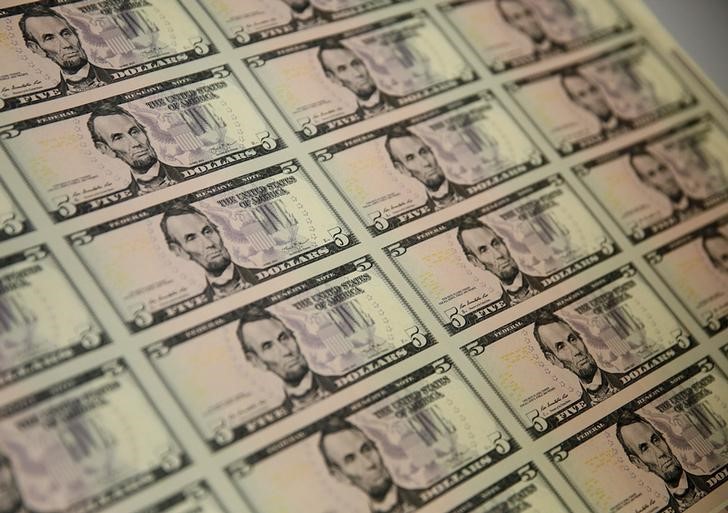By Peter Nurse
Investing.com - The dollar slumped to multi-year lows in early European trade Thursday, as growing confidence of both a new U.S. stimulus package and a Brexit deal boosted risk appetite at the expense of the world's safe haven.
At 3:55 AM ET (0755 GMT), the Dollar Index, which tracks the greenback against a basket of six other currencies, was down 0.5% at 89.877, falling to levels last seen in March 2018.
USD/JPY fell 0.3% to 103.22, EUR/USD rose 0.3% to 1.2230, trading at levels not seen since March 2018, while the risk-sensitive AUD/USD was up 0.5% at 0.7614, again at levels last seen in March 2018.
U.S. congressional negotiators still haven’t come to an agreement over a new coronavirus-relief bill, but senior members of both parties sounded more positive than they have in months on Wednesday.
Talks seem to be about the small details surrounding a $900 billion Covid-19 aid bill, which is expected to include $600-$700 stimulus checks and extended unemployment benefits.
While fiscal stimulus seems to be arriving shortly to help the country’s battered economy, the Federal Reserve vowed to keep its monetary funding ongoing until the U.S. economic recovery is secure.
“Even with a growing prospect of a new fiscal support package and news on a vaccine the Fed continues to suggest they see little chance of higher interest rates before 2024,” said analysts at ING, in a research note.
Elsewhere, GBP/USD rose 0.5% to 1.3571, climbing to levels not seen since April 2018, as optimism over a Brexit trade deal climbs.
European Commission President Ursula von der Leyen said Wednesday that the two sides were closer to a deal, although she warned that success was not guaranteed with differences over fishing rights still causing problems.
The Bank of England holds its last policy-setting meeting of the year later Thursday, but is widely expected to keep policy unchanged amid the uncertainties surrounding the Brexit negotiations as well as the spread of the Covid-19 virus.
The Swiss National Bank also holds its last scheduled policy decision of 2020 later Thursday, the day after the U.S. labelled Switzerland as a currency manipulator in the Treasury’s foreign-exchange policy report.
Still, the SNB is expected to keep its main policy rate at a record-low -0.75% The SNB already on Wednesday that it remained ready to intervene in currency markets, at even greater scale if needed.
The central bank spent 90 billion francs ($102 billion) in the first half of the year alone in an attempt to prevent the currency from appreciating, yet USD/CHF still dropped 0.2% to 0.8834.
